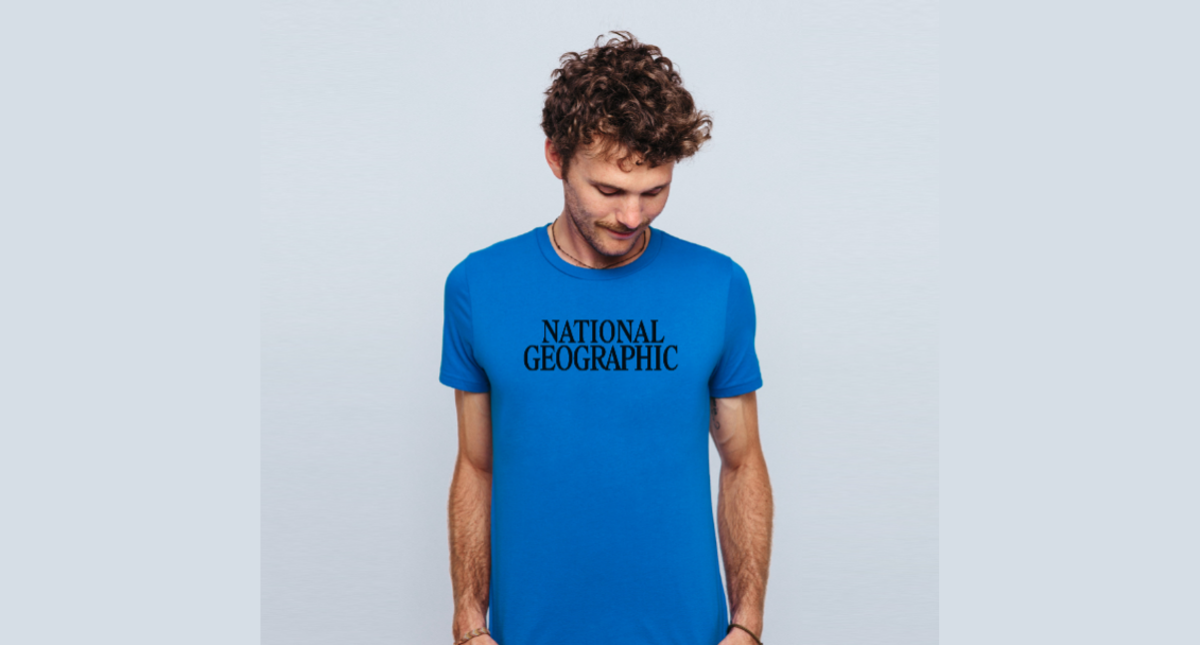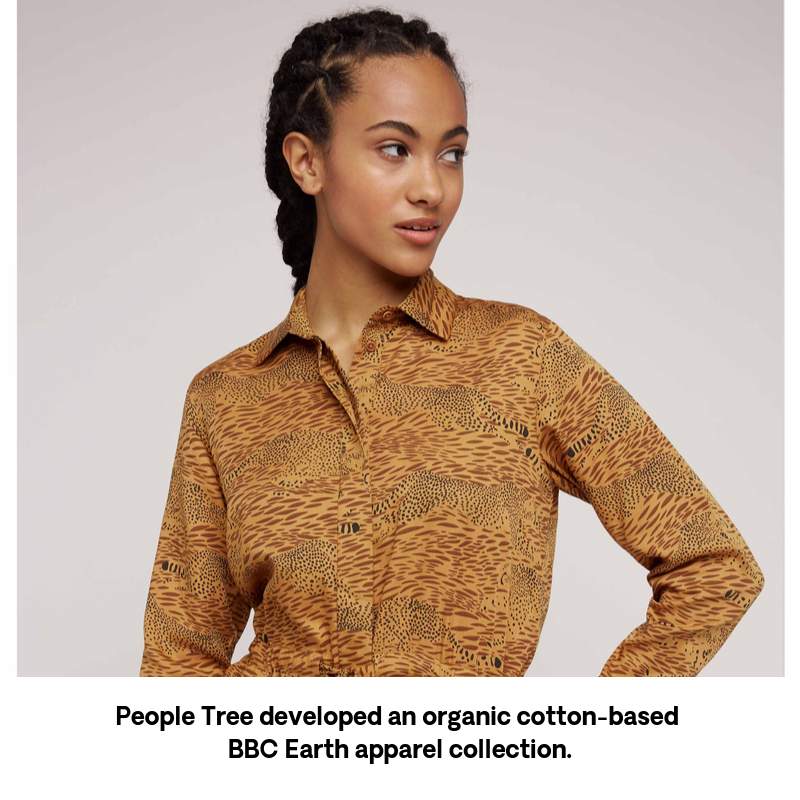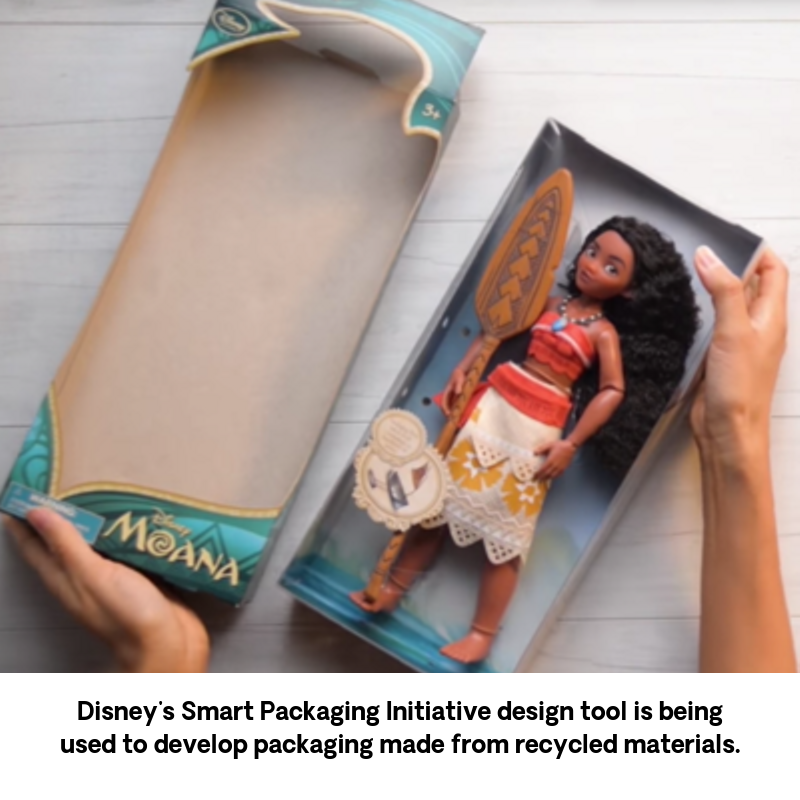What ‘sustainability’ really means for licensing

Sustainability is the buzzword of the moment across our industry and many others, but what does it really mean and what does it look like in action? We take a look at the reality of the sustainability movement in terms of cost and practical application.
Amid the surge in concern about the environment in large swaths of the global community, brands are increasingly adopting sustainability plans and extending them into licensing agreements.
Among other factors, the demand for products to be created using sustainable materials – a term that is commonly used but carries no single definition – is being driven Millennials and Gen Z consumers. Seventy-two percent of Gen Z consumers who responded to a survey earlier this year conducted by the renewable energy consulting agency Greenmatch said they were willing to spend more money on goods and services produced in a sustainable fashion. And nearly half have stopped purchasing or boycotted a brand because that brand stood for something or behaved in a way that was against their values.
Yet defining “sustainability” – whether it’s using biodegradable and recycled materials, requiring factories use a “closed loop” system to recycle solvents and other materials or reducing the use of plastic – is a work in progress when it comes to licensing. So far, brand owners’ and manufacturers’ efforts are along two primary paths – how products are made, and how they’re packaged.
In some cases, licensees are being required to submit a plan to brand owners outlining environmental and sustainability efforts before a deal is approved, but terms aren’t being written into contracts. But in others, specific requirements are being included in agreements.
For example, the University of Oxford’s board required three recent apparel licensees (Poetic Brands, Park Agencies and Europrosem) to submit a summary of their efforts with sustainable materials such as recycled cottons and packaging and “closed loop” manufacturing in which waste water is recycled, says Brandgenuity’s Teri Niadna, whose firm handles licensing for Oxford. While sustainability wasn’t written into the licensing agreement, all three of the new licensees, who are delivering product by year-end, are using recycled polyester and cotton and have committed to having 100% recycled packaging by 2025, says Niadna. Oxford hasn’t defined sustainability requirements yet for licensees, opting for now for a broad outline of plans. In many cases, requirements for sustainability are being included in new agreements, or those that come up for renewal.
“Virtually all of our clients have expressed interest in having sustainability as part of their licensing program; that is the rule more than the exception,” says Niadna. “But what that means in practice is still in flux, and we are still trying to figure that out.”

Some companies are reluctant to make sustainability claims until the entire supply chain can be compliant with standards that are still being developed. Many companies want to avoid being accused of “greenwashing” or making environmental claims that might later be disproven. One method for establishing benchmarks for sustainability throughout the supply chain would be creating a program akin to Fair Trade certification, which is applied to products that are grown, harvested, manufactured and traded in ways that improve lives and protect the environment. Executives project it will take 5-10 years before an entire supply chain can be deemed sustainable.
“What we are trying to do is make a fully sustainable product from the source through the supply chain and onto the retail shelf,” says one apparel licensee. “Considering the number of people and companies in the supply chain it will take a while for everyone to get aligned, but it can move quickly.”
Yet while the terms and requirements are still being defined, licensors and licensees are moving ahead with sustainability programs across materials, manufacturing and packaging.
- UK fashion label People Tree, in developing a BBC Earth apparel collection earlier this year (t-shirts, tote bags), was asked to use organically-sourced cotton (material that is grown without fertilizers or pesticides) and certify that its suppliers used a closed-loop manufacturing system, says People Tree’s Head Buyer Jenny Hulme. People Tree, which uses sustainable materials like organic cotton and Tencel brand lyocell (cellulose fibers made from dissolving wood pulp) in its apparel, wasn’t required to do so in the BBC licensing agreement, but made a verbal commitment, says Hulme. It is releasing a second collection this fall featuring graphic t-shirts, a dress, jumpsuit and tote bag. People Tree also is launching a Moomin licensed apparel line in December using organic cotton.
- UK-based apparel supplier Rapanui, which also develops t-shirts and other items using organic cotton, launched a National Geographic collection earlier this year that enables the clothing, after use, to be returned to apparel recycler Teemill to be fashioned into new products.
- Inditex, parent company of Zara, Pull & Bear and other retail chains, said earlier this year all of its collections will be made from 100% sustainable fabrics by 2025.
- The Spain-based fashion brand Springfield, which has more than 800 stores, set a target of using 100% organic cotton in apparel and shifting some production to laser technologies for denim finishing, which can save water during manufacturing and reduce the release of toxic chemicals. And as more retailers push forward with sustainability goals, licensees are going to be forced to follow suit. “Some of the larger retailers have very ambitious goals and licensees that supply them are being forced to meet those targets if they want to continue to do business with them,” says Niadna.
- Vintage Supply UK will launch a Corona brand collection of 39 styles of men’s and women’s tops, bottoms and accessories in the spring that use recycled poly-cotton as part of an agreement with AB InBev, which is increasingly making sustainability a part of its licensing agreements. AB InBev is targeting having 100% of its packaging be from recycled materials by 2025 and 100% of “high-stress” markets — regions where water is in tight supply — have improved water availability and quality.
- One UK IP owner is readying a new brand program that requires potential licensees be members of Sedex, a collaborative platform through which members share data on supply chains as a way to manage environmental impact and set standards and certifications.
- It would be a “natural step” for Lego to extend its sustainability program to its licensees, but for the time being the company will focus efforts on core products and packaging, says Matt Whitby, the company’s Environmental Engagement Manager. Lego has spent the better part of seven years trying to make its plastic blocks from plant-based materials, but so far has hit brick walls, according to a report earlier this year in the Wall Street Journal. It’s part of Lego’s 2012 pledge to find sustainable alternatives for its bricks by 2030.
- Hasbro earlier this year said it will phase out all plastics in packaging for its toys and games by late 2022. The plastics ban doesn’t cover the toys inside the package, but rather what Hasbro considers the most wasteful parts that typically end up being thrown out. For now, the phaseout will apply only to Hasbro’s own products. But a spokeswoman says it’s meant to “inspire” licensees to take similar actions. The move comes nearly a decade after Hasbro replaced wire ties – strips used to keep toys from shifting in the box – with natural rattan fasteners, which can be manufactured and disposed of with far less environmental impact. Last year Hasbro switched to plant-based bioPET plastic for packaging and launched a recycling program that lets parents ship used Hasbro toys to TeraCyle, which recycles them into new products.
- Disney’s Smart Packaging Initiative (SPI) was adopted late last year by The Toy Association, which made Disney’s sustainable
 packaging and design tool available to its members. The tool examines package designs, gives an SPI score and provides tips and comparisons against industry standards to help designers reduce the environmental impact of packaging. Disney, which launched SPI in 2016, hosts sustainable design workshops for licensees and makes the SPI tool available to licensees on a voluntary basis. Among the companies using SPI tools are Hasbro, Mattel and Lego.
packaging and design tool available to its members. The tool examines package designs, gives an SPI score and provides tips and comparisons against industry standards to help designers reduce the environmental impact of packaging. Disney, which launched SPI in 2016, hosts sustainable design workshops for licensees and makes the SPI tool available to licensees on a voluntary basis. Among the companies using SPI tools are Hasbro, Mattel and Lego. - To put further financial muscle behind sustaintability, BlackRock, the world’s largest asset manager, this month launched a $20 million fund with the Ellen McArthur Foundation aimed at driving investment in companies engaged in the “circular economy” that encourages efficient resource usage. So far the fund has spread investments across 30-50 companies, including Adidas, which has committed to using recycled plastic and polyester in its products.
- Competition between McDonald’s and Burger King is extending to the (often licensed) toys given away with children’s meals in the UK. McDonald’s responded to a petition from two UK children asking that free giveaways be stopped by instead offering customers a choice of a toy or fruit. (The petition suggested that the toys could be made from sustainable materials rather than plastic.) Burger King countered that it would no longer provide plastic toys with any of its kids’ meals.
- Licensors are increasingly requiring that packaging have Forest Stewardship Council (FSC) certification, meaning the paper used in packaging was taken from responsibly managed forests in which trees taken for production are replaced. Hasbro several years ago established FSC certification as one the tenets of its paper and forest procurement policy that governed its third-party packaging suppliers and set the target of having 90% of its paper packaging come from recycled materials. Lego also requires in its contracts that all wood and paper material used for products and packaging be FSC-certified.
“Licensors are becoming a little savvier about what they are putting into a licensing agreement,” says an executive at a major apparel licensee. “The knowledge of the supply chain has improved whether it is the brand owners, licensees or consumers that are buying the products. Previously, you would have had wording in licensing agreements like ‘licensees should be using recyclable packaging’ but now you have some stipulations that packaging must come from an FSC source and that you are using 100 percent sustainable materials. But a lot of wording [in contracts] also is still general in encouraging best practices rather than locking down specifics.”
The new sustainability requirements don’t come without a price. For the most part, says Trudi Bishop of Bee Licensing, apparel using recycled and other sustainable materials is seen mainly in “capsule collections, because not enough product can be produced through the supply chain yet and there isn’t enough manufacturing capacity yet.”
The base cost for creating sustainable products is typically double that of mass-produced items leading to a 10-15% premium at retail. For example, People Tree’s BBC Earth green turtle t-shirt made with organic cotton typically carries a $49 price tag, while VF Corp.’s North Face/National Geographic long-sleeve t-shirt with 40% recycled polyester sells for $40.
As licensors and licensees navigate the nuances of sustainability requirements, the newly formed The Products of Change Group is working to provide a guide. The 24-member group, comprised of Licensing International, licensees, licensors and other industry companies, first met in July and has broken into four working groups (fashion, toys, publishing, carbon footprint) as it seeks to gather information on licensing’s role in sustainability. The group, which will post its findings on Licensing International’s web site, is developing “bite-size” guides to sustainability and commercial solutions, says Licensing International’s Kelvyn Gardner. The group is meeting every other month.
Contacts:
Bee Licensing, Trudi Bishop, Managing Director, trudi@beelicensing.com
Brandgenuity, Teri Niadna, Managing Director Europe, + 44 20 3884 7130, teri@brandgenuity.com
Lego, Matt Whitby, Environmental Engagement Mgr., +45 795 02535, matthew.whitby@lego.com
People Tree, Jenny Hulme, Head of Buying, +44 20 7042 8953, jenny.hulme@peopletree.co.uk




